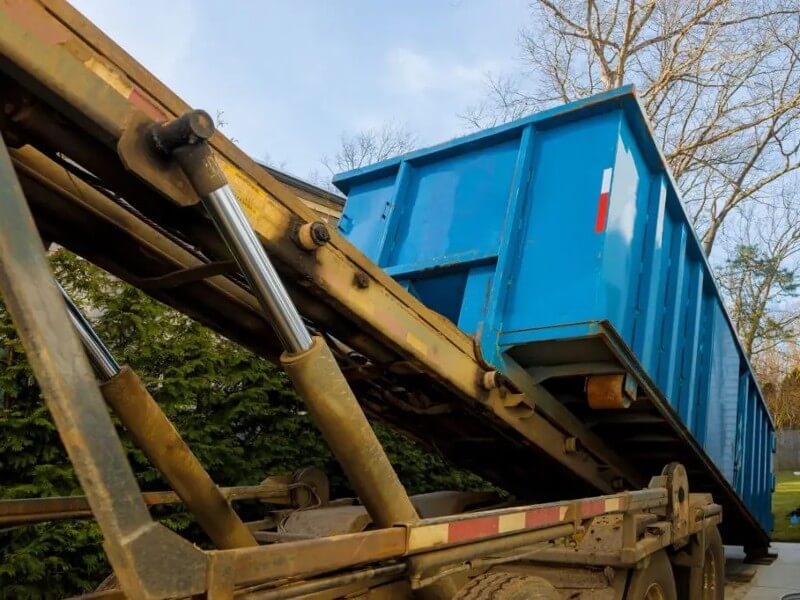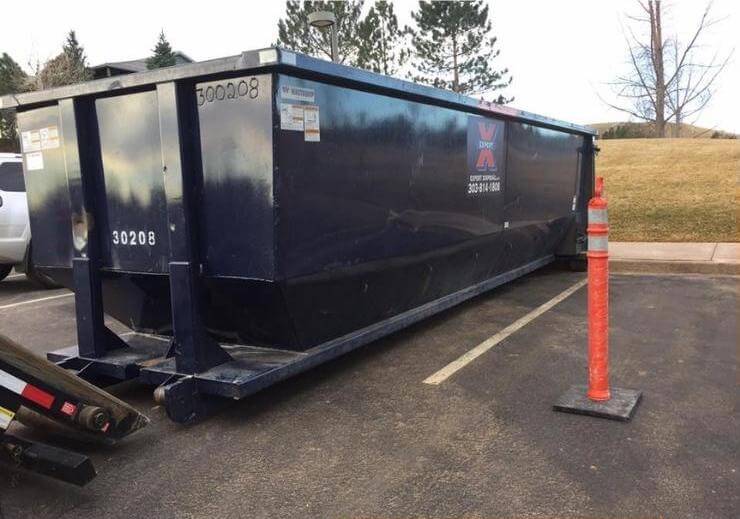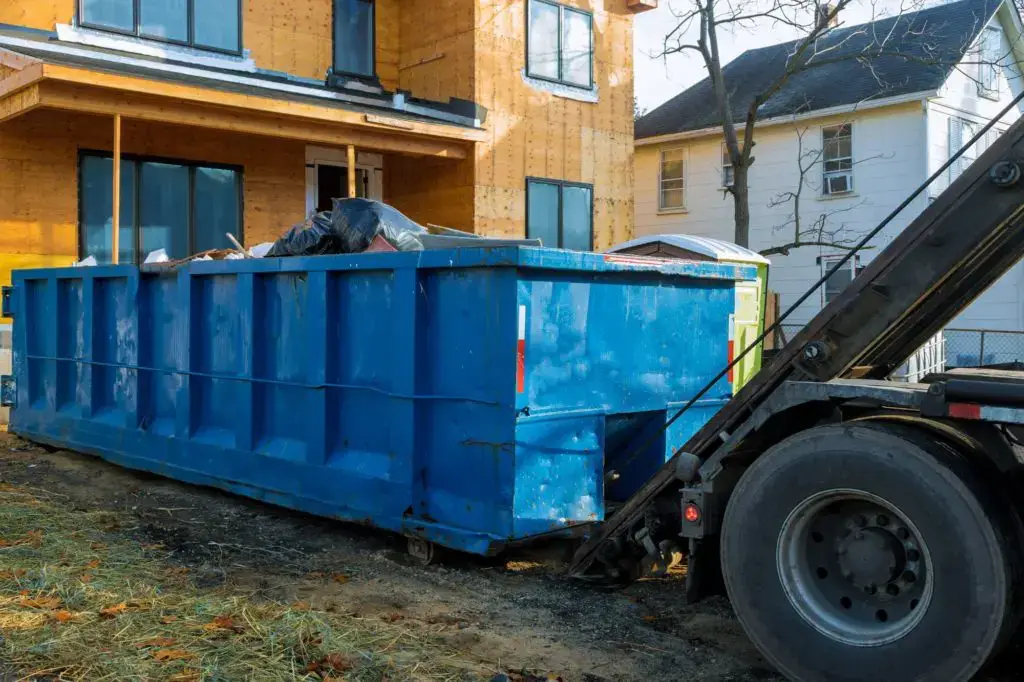Challenges Faced by New Dumpster Rental Start-Ups
The dumpster rental industry is a vital part of our communities. It ensures that waste from various projects, big or small, is handled efficiently. For those looking to dive into this business, the allure is clear: a steady demand, the potential for growth, and the satisfaction of providing an essential service. However, like any venture, starting a dumpster rental business comes with its set of challenges.
Operational Challenges for Dumpster Rental Start-ups
Starting a new venture in the dumpster rental industry is no small feat. While the potential rewards are enticing, there are several operational hurdles that newcomers must navigate. Balancing these challenges with the drive to succeed is essential.
Initial Capital Requirements
Entering the dumpster rental business requires a significant initial investment. Here’s what to consider:
- Fleet Acquisition: It’s not just about having trucks. It’s about having the right kind of roll-off dumpsters that can handle various tasks.
- Maintenance: Regular upkeep ensures the fleet remains reliable. This means periodic checks, repairs, and replacements when needed.
The key is to view these investments not as mere expenses but as foundational steps towards building a robust business.
Efficient Route Planning and Scheduling
Efficiency is the name of the game. To ensure the business runs smoothly:
- Planning: Smart route planning can save both time and fuel. It’s about getting to the destination quickly and without unnecessary detours.
- Scheduling: Meeting customer needs is paramount. This involves timely pick-ups and drop-offs, ensuring that clients are satisfied and operations are streamlined.
With the right approach, these challenges can turn into opportunities for optimization and growth.

Navigating the Regulatory Landscape of Dumpster Rental Start-ups
The dumpster rental industry, while lucrative, is closely intertwined with various regulations. These rules are in place to ensure safety, environmental protection, and fair competition. For newcomers, understanding and complying with these regulations is crucial to avoid pitfalls and ensure smooth operations.
Understanding Waste Management Regulations
Every region has its set of rules when it comes to waste management. Here’s what to keep in mind:
- Local and Federal Guidelines: Different areas might have varying regulations. It’s essential to be familiar with both local and broader federal guidelines to ensure full compliance.
- Types of Waste: Not all waste is treated equally. Some materials might be considered hazardous, while others could be recyclable. Knowing how to handle and dispose of different waste types is crucial.
Environmental Considerations and Sustainable Practices
With the world moving towards greener practices, the dumpster rental business is no exception:
- Eco-friendly Disposal: It’s not just about getting rid of waste. It’s about doing so in a manner that minimizes environmental impact. This might involve recycling, composting, or other sustainable methods.
- Reducing Carbon Footprint: From the type of vehicles used to the routes chosen, there are numerous ways to ensure the business operates with a reduced carbon footprint.
Licensing, Permits, and Legal Compliance
Starting a business involves more than just capital and equipment:
- Securing Licenses: Before operations begin, it’s essential to secure the necessary licenses. This not only ensures legality but also builds trust with potential clients.
- Permits for Special Waste: Some types of waste might require special permits for disposal. Being aware of these and securing them in advance can prevent potential roadblocks.
By diligently navigating the regulatory landscape, dumpster rental start-ups can build a solid foundation, ensuring they operate within the bounds of the law and with the utmost professionalism.
Market Competition and Branding for Dumpster Rental Start-ups
Entering the dumpster rental industry means stepping into a competitive arena. Established players have their loyal customer base, and newcomers must find ways to carve out their niche. A strong brand identity and strategic marketing can be the difference-makers in this challenging environment.
Differentiating from Established Competitors
In a sea of similar services, standing out is essential:
- Unique Selling Proposition (USP): Determine what makes the business unique. It could be faster service, eco-friendly practices, or competitive pricing. Highlighting this USP can attract customers.
- Local Expertise: Emphasize local knowledge and commitment. Being deeply rooted in the community can create trust and loyalty among clients.
Building a Strong Brand Identity
A brand is more than just a logo or a catchy slogan:
- Consistent Messaging: Ensure that all communication, whether it’s on a website, social media, or print materials, conveys the same message and values.
- Professional Appearance: From the design of the dumpsters to the uniforms of the staff, a professional look can enhance credibility and attract more clients.
Effective Marketing Strategies
Promoting the business is crucial to gain visibility:
- Digital Presence: In today’s digital age, having a user-friendly website and active social media profiles can significantly boost visibility and customer engagement.
- Community Engagement: Participate in local events, sponsor community activities, or host educational sessions on waste management. Such initiatives can position the business as a community leader.
- Customer Testimonials: Positive reviews and testimonials can be powerful marketing tools. Encourage satisfied customers to share their experiences, and showcase these endorsements prominently.
By focusing on differentiation, building a robust brand identity, and employing effective marketing strategies, dumpster rental start-ups can navigate the competitive landscape and establish a strong foothold in the market.

Customer Service and Retention in Dumpster Rental Start-ups
In the dumpster rental business, the equipment might be the tangible asset, but it’s the relationships built with customers that truly drive success. Exceptional customer service not only ensures satisfied clients but also fosters loyalty, leading to repeat business and positive word-of-mouth.
Meeting and Exceeding Customer Expectations
Every interaction with a customer is an opportunity:
- Timeliness: Whether it’s a scheduled pick-up or addressing a query, punctuality is key. It shows respect for the customer’s time and builds trust.
- Clear Communication: Keeping customers informed, whether it’s about potential delays, pricing, or any other aspect, ensures transparency and reduces misunderstandings.
Handling Disputes and Negative Reviews
No business is immune to occasional hiccups:
- Active Listening: When a customer has a complaint, listening actively and empathetically can diffuse tension and pave the way for a resolution.
- Prompt Resolution: Addressing issues swiftly and effectively demonstrates a commitment to customer satisfaction.
- Feedback Loop: Use negative feedback as a learning opportunity. Implement changes to prevent similar issues in the future.
Building Loyalty Through Value-Added Services
Going the extra mile can make a difference:
- Loyalty Programs: Offering discounts or perks for repeat customers can encourage them to choose the business for their future needs.
- Educational Content: Sharing tips on waste management, recycling, or other relevant topics can position the business as a knowledgeable industry leader.
- Personalized Touch: Simple gestures, like remembering a client’s preferences or sending a thank-you note, can foster a deeper connection.
In the competitive world of dumpster rentals, exceptional customer service and a focus on retention can set a start-up apart. By prioritizing the customer experience, businesses can build a loyal client base and ensure long-term success.

A Promising Path Forward for Dumpster Rental Start-ups
Navigating the world of dumpster rental as a start-up presents its set of challenges, from operational hurdles to market competition. However, with a clear understanding of these challenges, a focus on customer-centric practices, and a commitment to continuous improvement, the road ahead is filled with promise. By embracing innovation, prioritizing customer relationships, and staying true to core values, dumpster rental start-ups can not only thrive but also leave a lasting, positive impact on the communities they serve.
FAQs about Challenges Faced by Dumpster Rental Start-ups
1. What are the primary operational challenges faced by new dumpster rental start-ups?
New start-ups often grapple with initial capital requirements, especially in fleet acquisition and maintenance. Efficient route planning, scheduling, and integrating modern technology into operations are also common challenges.
2. How can dumpster rental start-ups navigate the complex regulatory environment?
Start-ups should familiarize themselves with both local and federal waste management regulations. This includes understanding different waste types, ensuring eco-friendly disposal practices, and securing necessary licenses and permits.
3. What strategies can help new dumpster rental start-ups stand out in a crowded market?
Differentiating from competitors through a unique selling proposition, building a strong brand identity, and employing effective marketing strategies tailored to the industry can help start-ups gain visibility and attract customers.
4. How important is customer service for the success of a dumpster rental start-up?
Exceptional customer service is paramount. It not only ensures satisfied clients but also fosters loyalty, leading to repeat business and positive referrals. Prioritizing customer needs, handling disputes effectively, and offering value-added services can enhance the customer experience.
5. Are there specific marketing tactics that work best for dumpster rental start-ups?
Digital marketing, including a user-friendly website and active social media presence, is crucial in today’s landscape. Additionally, community engagement, customer testimonials, and localized advertising can be effective in reaching the target audience.

